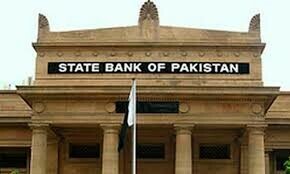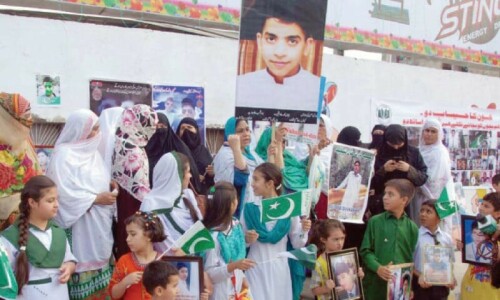Shaukat Thanvi, Vahi Vahanvi and Saudeshi Rail
 Thana Bhaun, a small town in Muzaffar Nagar district of the Indian state of Utter Pradesh, is Shaukat Thanvi’s ancestral hometown. It is this place, Thana, which has given many people their last name: Thanvi. Though his father, Munshi Siddiq Ahmed, had settled in Lucknow, Shaukat Thanvi was born in Bandraban, Mathura district, UP, on February 2, 1904.
Thana Bhaun, a small town in Muzaffar Nagar district of the Indian state of Utter Pradesh, is Shaukat Thanvi’s ancestral hometown. It is this place, Thana, which has given many people their last name: Thanvi. Though his father, Munshi Siddiq Ahmed, had settled in Lucknow, Shaukat Thanvi was born in Bandraban, Mathura district, UP, on February 2, 1904.
Shaukat Thanvi was an essayist, columnist, novelist, short story writer, broadcaster, playwright, sketch-writer and poet but, in essence, he was a humorist and in almost all his writings an unmistakable streak of humour can always be traced.
Shaukat Thanvi had little formal schooling but in 1928 he joined Hamdam, an Urdu daily brought out from Lucknow by Syed Habib Jalib. Later he worked for other newspapers and magazines such as Avadh Akhbar, Haq, Kainaat and Sarpunch. In 1938, he decided to launch his own newspaper, Toofan, but had to close it down before long.
After the establishment of a radio station in Lucknow in 1938, Shaukat Thanvi was offered the job of broadcasting humorous talks on radio which he accepted. He also wrote many plays. In 1939, Shaukat joined radio as a writer and broadcaster and had to quit journalism.
On the suggestion of Syed Imtiaz Ali Taj, Shaukat Thanvi joined Lahore’s Pancholi Art Pictures as a story and song writer in 1943. Shaukat worked there for about a year. By then, he had established himself as a humorist and his satirical piece Saudeshi Rail, or Native Train, had become highly popular. Saudeshi Rail is an imaginative account of the fate of the railways once the movement for the independence of India has succeeded. The piece envisions a newly independent country run by inefficient and negligent officials, resulting in a comedy of errors and total chaos. It was his sarcastic way to remind the countrymen that, in view of our abysmal managerial skills and work ethics, we did not deserve independence and if the foreign rulers left we would be left at the mercy of those who could not run even a train properly let alone the entire country.
Despite its satire and lively style, from a nationalistic point of view this could be seen as an anti-independence piece trying to undermine the independence movement that was running at full throttle during the Second World War. Many even used to refer to the piece as reasoning against independence. But from the point of view of the colonial masters, it was a masterpiece and supported their side of the argument. The information department sent the translated version of the piece to the governors and the viceroy.
 The government had established a strong publicity department for war propaganda. Shaukat Thanvi was offered a job in the department which he accepted. He joined Pancholi again in 1946 as the war had ended but political turmoil stopped the work on its movies. After independence, Pancholi closed down and he joined Radio Pakistan in Lahore.
The government had established a strong publicity department for war propaganda. Shaukat Thanvi was offered a job in the department which he accepted. He joined Pancholi again in 1946 as the war had ended but political turmoil stopped the work on its movies. After independence, Pancholi closed down and he joined Radio Pakistan in Lahore.
Shaukat Thanvi was a prolific writer and penned some sixty books which include collections of short stories and humorous essays, plays and novels. He was also a poet and Guharistan is a collection of his poetry published early in his career.
It is worth noting that Shaukat Thanvi’s name has been associated with a stigma. It remained a mystery for long as to who the real writer of the lewd novels appearing with the pen-name of Vahi Vahanvi as author was. Though many unscrupulous publishers and writers subsequently used this name to mint money by bringing out such fiction, it is generally believed that Naseem Anhonvi and Shaukat Thanvi began it all. This claim has been substantiated by some researchers and scholars and Dr Saeed Murtaza Zaidi, for instance, has given details in his doctoral dissertation on Shaukat Thanvi, published by Maghrabi Pakistan Urdu Academy, Lahore.
In 1957, Shaukat Thanvi joined Jang, Karachi, and wrote a humour column called Vaghaira vaghaira. When Jang launched its Rawalpindi edition in 1959, Shaukat Sahib was posted there. He received Tamgha-i-Imtiaz in March 1963. He was ill and his health deteriorated there. He died on May 4, 1963 and was buried in Miani Sahib Graveyard.











































Dear visitor, the comments section is undergoing an overhaul and will return soon.